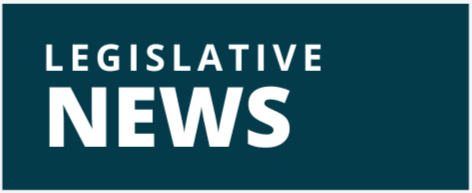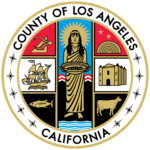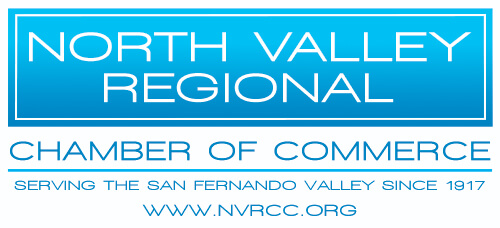
**Did You Know: Proposed Legislation May Impact California's Hemp Industry**
8/5/24
Assembly Bill 2223, currently under consideration in California, could significantly affect the state's hemp industry by altering how non-intoxicating, low-THC hemp products are sold. The bill proposes that these products be available exclusively through marijuana dispensaries, a shift that raises concerns among small business owners and consumers about access to wellness products and the economic impact on local businesses.
Sunmed | Your CBD Store, which operates 19 independently owned locations in California, reports that 10 of these stores are situated in areas where marijuana dispensaries are not allowed. This presents a challenge for these stores, as converting to dispensaries may not be feasible or aligned with their business models focused on health and wellness products rather than recreational use.
According to Claudia Chaverra, owner of a Sunmed | Your CBD Store location and chamber member, their products are primarily sought for health benefits like sleep support and anxiety relief. The proposed legislation would impose strict limits on THC content, potentially affecting a significant portion of their inventory.
The bill aims to reassign retail rights for full-spectrum hemp products, which could centralize the market for cannabis and hemp under marijuana dispensaries. This move may have a substantial fiscal impact on the state and local economies, potentially affecting jobs and tax revenues generated by existing hemp retailers.
Marcus Quinn, CEO of Sunmed | Your CBD Store, highlights the economic contributions of their California stores, which have generated considerable sales and tax revenue. He emphasizes that their products adhere to high safety and compliance standards, meeting stringent regulatory guidelines.
Some support enhanced regulation and suggest increased funding for the California Department of Public Health to improve enforcement against non-compliant products. They advocate for community involvement in discussing the potential effects of AB 2223, encouraging engagement with local representatives.
For more information or to express concerns about the bill, contact legislative committee or the NVRCC.
For more information, visit https://hempsupporter.com/state-action/ca/


Los Angeles County Board of Supervisors approve governance and ethics reform
7/23/24
In a historic action on July 9th, 2024, the Los Angeles County Board of Supervisors have approved the most comprehensive governance and ethics reform package in over 100 years. Spearheaded by Board Chair Lindsey P. Horvath and Supervisor Janice Hahn, the proposal aims to create an elected County Executive, expand the Board of Supervisors from five to nine members, and establish common-sense ethics reforms. These changes are now set to be drafted as an ordinance to amend the Los Angeles County Charter.
“Los Angeles County’s government structure has remained the same since 1912, before women even had the right to vote! Now is the time to take on what has been necessary for decades: comprehensive governance reform for Los Angeles County,” said Board Chair Lindsey P. Horvath. “Our communities deserve a more representative government with a foundation of transparency that brings them to the decision-making table. Los Angeles is ready for meaningful structural change to take on the significant challenges impacting Angelenos today. With the 2030 Census on the horizon, and a Board of women leaders looking to the future, this is a once in a generation opportunity to act.”
Supervisor Janice Hahn echoed these sentiments, highlighting the need for a more inclusive and effective governance structure. “Our districts have been too big for too long, and I think there is finally an appetite among voters for change,” Hahn stated. “In a county as large and as diverse as ours, we need more seats at the table. By expanding the Board of Supervisors, allowing voters to elect their County Executive, and putting common-sense ethics reforms in place, I hope we can strengthen LA County government as we take on some of the biggest challenges we face.”
Key Components of the Reform Package
1. Elected County Executive: The introduction of an elected County Executive would create a distinct executive branch, separate from the legislative functions of the Board of Supervisors. This move is intended to enhance accountability and streamline executive decision-making processes.
2. Expanded Board of Supervisors: Increasing the number of Supervisors from five to nine would allow for more localized representation, reducing the constituent load from two million to approximately one million per Supervisor. This change aligns with governance structures in other large metropolitan areas across the United States.
3. Ethics and Transparency Reforms: The package includes measures to boost transparency and ethical governance, such as:
o Establishing a commission to review the County Charter every ten years.
o Creating roles for a Director of Budget and Management and a County Legislative Analyst.
o Requiring departments to present their annual budget in open hearings.
o Forming a task force to oversee the implementation of these reforms.4. Cost Neutrality: All proposed changes are designed to be implemented without additional costs or new taxes for taxpayers.
Next Steps
If the ordinance will be placed on the November 5, 2024, ballot for voter consideration as a charter amendment ballot measure.
Voter Sentiment
Public opinion strongly supports the need for reform, with nearly nine in ten voters expressing that Los Angeles County government requires significant changes. The proposed reforms aim to meet this demand by creating a more efficient, transparent, and representative governance structure.
Conclusion
The initiative spearheaded by Board Chair Lindsey P. Horvath and Supervisor Janice Hahn represents a bold step toward modernizing Los Angeles County’s government. By addressing long-standing issues and preparing for future challenges, this reform package seeks to build a stronger, more responsive county government that better serves its diverse and growing
population.
SB 1327 Continues to Move Forward Despite Opposition
7/3/24
As the legislative summer recess begins, SB 1327 remains a contentious issue. The bill proposes a 7.25% tax on digital advertising revenue, which the Chamber argues is unconstitutional and violates the Internet Tax Freedom Act. They warn that it will lead to expensive litigation and higher costs for businesses and consumers as digital platforms pass on the tax. Despite significant opposition from various business groups, the bill continues to progress through the legislative process.
The US Chamber of Commerce and the SBA highlight several concerns about SB 1327. First, they argue that the tax specifically targets digital advertising, potentially placing an unfair burden on this segment of the economy. The Chamber also believes that the bill could set a dangerous precedent for additional taxes on digital services, which could further complicate the business landscape in California.
Another major point of contention is the bill's potential impact on small businesses. Many small enterprises rely heavily on digital advertising to reach their customers. The additional tax burden could reduce their ability to compete with larger companies that can absorb the costs more easily. The Chamber suggests that this could stifle innovation and economic growth within the state.
Furthermore, the Chamber raises legal concerns, asserting that the tax violates the Internet Tax Freedom Act, which prohibits states from imposing discriminatory taxes on electronic commerce. They predict that the passage of SB 1327 would lead to costly and protracted legal battles, diverting resources away from more productive uses.
Despite these arguments, supporters of the bill claim that it is necessary to level the playing field between traditional and digital advertising platforms and to generate revenue for essential public services. The ongoing debate highlights the complex interplay between taxation, digital commerce, and economic policy.
As the summer recess begins, stakeholders from all sides are likely to intensify their efforts to influence the bill's outcome. Businesses, legal experts, and policymakers will need to navigate these challenges carefully to arrive at a solution that balances economic growth with fair taxation.
---
Andreas Farmakalidis
North Valley Regional Chamber of Commerce
The importance of Extending the 20% Pass-Through Deduction for Small Business
5/28/24
Since the enactment of the Tax Cuts and Jobs Act in 2017, the corporate tax landscape has undergone significant changes. One of the most notable alterations was the permanent reduction of the corporate income tax rate from 35% to 21%. However, for pass-through businesses – including sole proprietorships, partnerships, and S corporations – Congress introduced a lifeline in the form of a 20% deduction for qualified business income under section 199A of the Internal Revenue Code.
This deduction was a crucial measure to ensure that pass-through entities weren't left behind in the tax reform efforts, aiming to maintain parity with C corporations. However, unlike the permanent reduction for C corporations, the 20% deduction for pass-through businesses is slated to expire at the end of 2025.
As representatives of the North Valley Regional Chamber of Commerce, it's imperative for us to address the potential implications of this expiration on our local businesses. The looming question arises: Is the expiration of the 20% pass-through deduction a threat to small businesses?
Small businesses form the backbone of our economy, driving innovation, job creation, and economic growth in our communities. Pass-through entities, in particular, constitute a significant portion of these enterprises. For many small business owners, the 20% deduction has provided much-needed relief, enabling them to reinvest in their businesses, expand operations, and hire more employees.
However, with the deduction set to expire in just a few years, uncertainty looms over the future tax burden of pass-through businesses. Without the extension or permanency of this deduction, many small businesses could face higher tax liabilities, constraining their ability to grow and thrive in an already challenging economic environment.
Furthermore, the potential expiration of the 20% pass-through deduction may exacerbate disparities between pass-through entities and C corporations, creating an uneven playing field that favors larger corporations over smaller enterprises. This could stifle competition and innovation, hindering the vibrancy of our local business ecosystem.
As advocates for our members, it is incumbent upon us to voice our concerns and advocate for policies that promote the growth and prosperity of small businesses. We urge policymakers to consider the ramifications of allowing the 20% pass-through deduction to expire and to take proactive steps to support small businesses through targeted tax policies.
In conclusion, the expiration of the 20% pass-through deduction poses a significant threat to small businesses, potentially hampering their ability to thrive and compete in the marketplace. It is imperative that we address this issue collectively and work towards solutions that foster a favorable environment for entrepreneurship and economic prosperity in our region.
Homelessness, Drug Addiction and Retail Theft Reduction Act
5/28/24
We hear in the news every day about the homelessness problem, drug and alcohol abuse and break ins, ‘smash and grabs’ in our community. Something needs to be done to protect the individuals and businesses in our community that are the lifeblood of living here. Californians for Safer Communities, a grass roots organization, is promoting an initiative for the November 2024 ballot to make revisions to Prop 47, that many think have contributed heavily to our current situation. There have already been close to 1,000,000 signatures collected to put this on the ballot in November. The Homelessness, Drug Addiction and Theft Reduction Act has to be passed in order to make these changes. Sacramento cannot unilaterally make changes since Proposition 47 was originally put in place by a vote of the people. Changes also need to come from a vote of the people. Watch for this proposition on the November 2024 ballot.
For more information go to https://casafecommunities.com/
